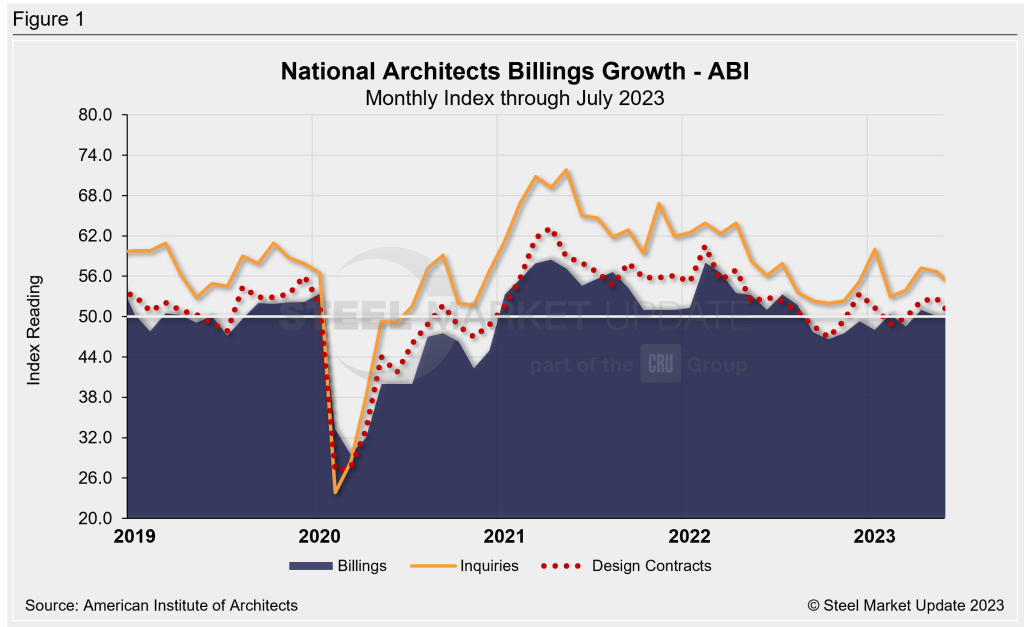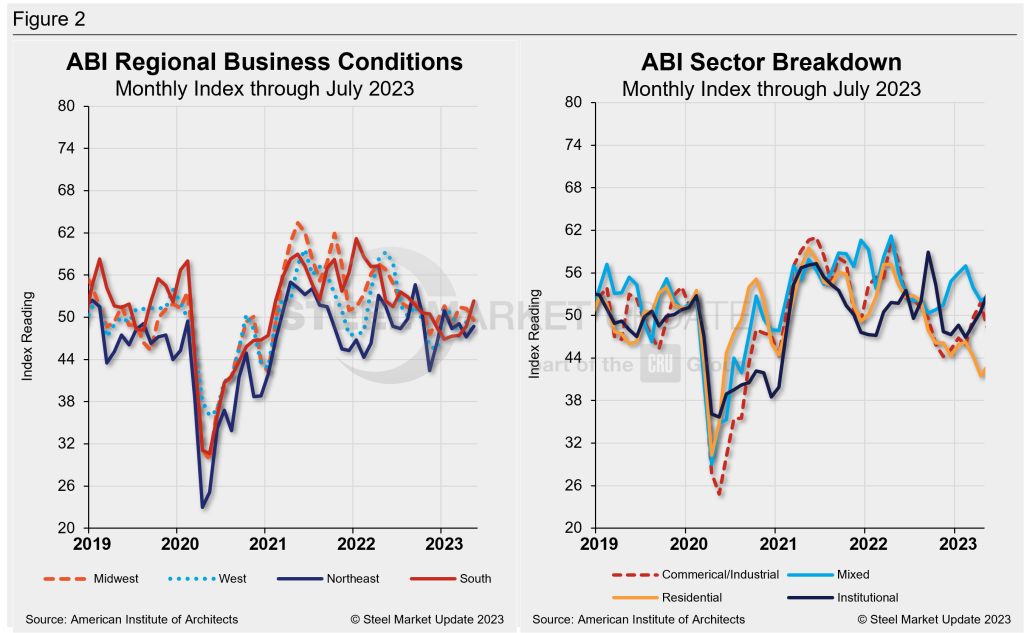Market Data
August 24, 2023
Architecture Billings Index Flat in July
Written by Becca Moczygemba
July was a stable month for business at architectural firms, according to the month’s Architecture Billings Index (ABI) reading from the American Institute of Architects (AIA) and Deltek .
July’s index reading of 50.0 was basically flat from June’s 50.1. The reading has been at or above 50.0 since May of this year.
The ABI is a leading economic indicator for nonresidential construction activity with a lead time of 9-12 months. Any score above 50 indicates an increase in billings.

Fewer clients signed new design contracts in July compared to the previous two months, with the new contract index falling to 50.0 from 52.7.
Though billings were flat on a national scale, the Midwest maintained the strongest regional billings for the ninth consecutive month with an index reading of 51.6, said the AIA report.
The lowest regional billings came from the South at 48.9, down from 50.5 the previous month. The Northeast’s index registered 49.3, down from 50.6, and the West’s reading came in at 49.6, up from 48.6.
Firms with a commercial and industrial focus reported the strongest billings in over a year. Invoices from firms with a specialty in multifamily residential softened and have not reported growth in a year.

“Construction employment continued to strengthen, with a net total of 19,000 new jobs added. And architectural services employment continued to grow as well, with an additional 1,100 new positions added in June,” said the AIA report.
Employment remains an ongoing problem for many architecture firms, however.
The AIA surveyed firms of various sizes and approximately 53% considered their firms to be adequately staffed. Of those, large firms were the least likely to be appropriately staffed.
One 52-person firm in the South noted it was busy but financing is delaying projects.
“Accounts receivable are rising past 60 days to over 90. Project delays due to funding and scaled back scopes because of interest rates may lead to layoffs if we can’t find other opportunities,” said a 10-person firm in the Midwest with a commercial/industrial specialization.
An interactive history of the AIA Architecture Billings Index is available on the SMU website.







